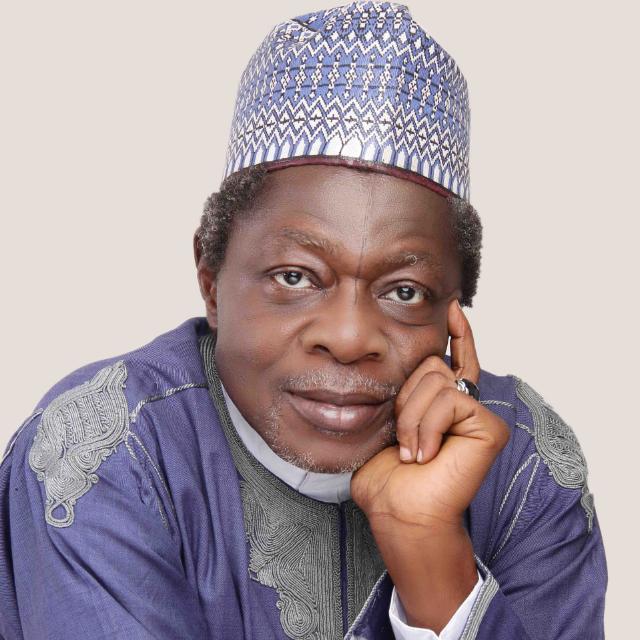Opinion
The Rule of Law, Nigeria’s Only Hope for Survival (3), By Hassan Gimba
Many patriots concerned with our rapid nose-diving in morals and abandonment of the rule of law believe that the British left too early. Some theorise that perhaps if our independence, achieved on a platter of gold, was delayed for 20 more years, we would have still been on the course.
Had we gotten our independence in 1980, about three generations of Nigerians would have gone through tutelage under the prim and proper Britons rather than just one generation. And perhaps respect for the rule of law might have been so engraved in our national psyche, they reason.
Well, our situation has passed the level of lamentation. What we should aim at, after identifying the cause(s) of our problem(s), is proffering the way out.
The most important thing is for our crime-fighting and justice enforcement capability to be strengthened.
At the height of the EndSARS protest, I wrote that the Nigerian Police Force, with the motto ‘The Police is Your Friend’, whose mission is to ‘make Nigeria safer and more secure for economic development and growth; to create a safe environment for everyone living in Nigeria and to build a people-friendly police force that will respect and uphold the fundamental rights of all citizens. But is the Force friendly? Do its operatives care for our rights?
The Nigeria Police have done its best to be accepted by Nigerians as an altruistic institution. It has created an excellent motto and at a time even changed its name by excising force, but apparently it has stuck. Happy to use force, often it never pretends to be a friend, even earning for itself the sobriquet ‘Kill and Go’, especially when the Police Mobile Force (PMF) was in vogue.
Even though many innocent citizens have died in its hands, the Nigeria Police have done wonderfully well in crime-solving that, sometimes, one wonders whether they use magic. Apart from excelling in international missions, they have cracked a lot of seemingly hopeless cases at home.
This is despite the known fact that the police in Nigeria are underpaid, under-trained, under-equipped and under-appreciated. The welfare of the average police officer is appalling as the force’s big guns convert provided funds for personal use, exhorting their juniors to “wait for your time”.
But the rot in the police force is beyond SARS. It is foundational, historical, institutional, traditional as well as cultural that only education (training is part of education) can improve them and save our country from their atrocities. In the first place, the primary reason the colonialists established the police was to protect British economic and political interests and the police achieved that through brutal subjugation of indigenous communities by the use of violence, repression, and excessive use of force.
Nigerian leaders who took over from the colonialists have continued to use the police in a similar vein. So all ministers, legislators, entrepreneurs, their wives, children, girlfriends, businesses, residences, etc, all have adequate police protection while our communities and streets do not have enough.
Though it is a Nigerian phenomenon for anyone in a uniform of whatever shade to be a tyrant, the police officer must be educated to know that the personal safety and wellbeing of every Nigerian is his primary duty, not the opposite as has been the case most times. His loyalty is foremost to the Nigerian constitution, not to any individual. He must be humane, law-abiding, conscientious and people-friendly. But their bosses (of course there are excellent ones) must be fair to the institution and subordinates by jettisoning the mantra, ‘Wait for your time.”
Again, it is not just about salary. A poor mind will still lust for more, no matter how much his take-home pay is. Coupled with education, the police officers’ welfare must also be looked into. What obtains now, right from training school, can only produce frustrated individuals. He should not be allowed to put his life on the line for us while the state treats him with disdain.
Then we must enhance our intelligence-gathering methods. There used to be a time when the Crime Investigation Department of our police was famed for its many successful exploits. Likewise, the Department of State Services is still doing a wonderful job. I know this because the DSS played a major role in decimating Boko Haram members living in towns.
Perhaps what remains is to resuscitate our information gathering abilities because apart from technology, human intelligence (HUMINT) gathering through stool pigeons, etc, cannot be overemphasized.
Our judiciary and its capacity to deliver timely, just and fair judgment on cases involving the weak and the strong must be improved. Timely judgment delivery takes care of case clogs. Cases that have been begging for attention overwhelm the courts because of their plodding nature. Some cases can take years, even decades, before they can be foreclosed.
There also has to be the least interference in the dispensation of justice. Where the executive stops a case through nolle prosequi or outrightly tells the judge to hands off a case, or even deliberately refuses to attend proceedings, must stop.
We have witnessed how criminals who break the laws of the land are given a soft landing. There are cases where governments “pardon” those who have taken up arms against the state. These are insurgents who have slaughtered, maimed, burned public and private property. To pardon them while nothing is done to mitigate the pain of those they harmed, or their families in both the civilian and uniformed populations, sends the wrong signal.
Next, which may be the last part of this treatise, we shall look at the role of leadership in entrenching the rule of law in a country. We shall also attempt to suggest the type of leadership that suits us as a nation with diversity and possibly a leader that may be capable.–
Hassan Gimba

